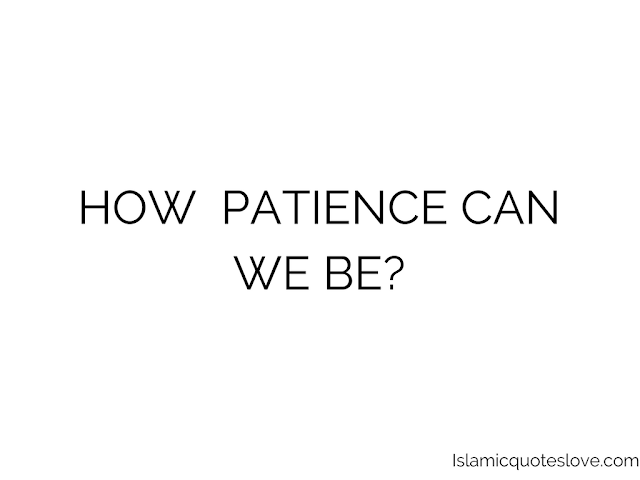1. Knowledge, i.e., that Allaah knows what His creation will do, by virtue of His eternal knowledge.
2. Writing, i.e., that Allaah has written the destiny of all creatures in al-Lawh al-Mahfooz.
3. Will, i.e., that what Allaah wills happens and what He does not will does not happen. There is no movement in the heavens or on earth but it happens by His will.
4. Creation and formation, i.e., that Allaah is the Creator of all things, including the actions of His slaves. They do their actions in a real sense, and He is the Creator of them and of their actions.
Whoever believes in these four believes in al-qadar which is compulsory to believe in as a Muslim.
The Qur’aan affirms these things in numerous verses, such as the verses in which He says;
“And with Him are the keys of the Ghayb (all that is hidden), none knows them but He. And He knows whatever there is in the land and in the sea; not a leaf falls, but He knows it. There is not a grain in the darkness of the earth nor anything fresh or dry, but is written in a Clear Record”[al-An’aam 6:59]
“No calamity befalls on the earth or in yourselves but it is inscribed in the Book of Decrees (Al‑Lawh Al‑Mahfooz) before We bring it into existence. Verily, that is easy for Allaah”[al-Hadeed 57:22].
“And you cannot will unless (it be) that Allaah wills the Lord of the ‘Aalameen (mankind, jinn and all that exists)”
[al-Takweer 81:29].
Shaykh al-Islam Ibn Taymiyah (may Allaah have mercy on him) said, explaining the view of Ahl al-Sunnah with regard to man’s deeds:
People act in a real sense, and Allaah is the Creator of their actions. A person may be a believer or a kaafir, righteous or immoral, he may pray and fast. People have control over their actions, and they have their own will, and Allaah is the Creator of their control and will.
Marriage is one of the things that Allaah has decreed. The person whom you will marry is known to Allaah: He knows who he is, when he was born, where and when he will die, how he will be towards you, and other details. All of that is known to Allaah and He has written it in al-Lawh al-Mahfooz (the Book of Decrees), and it will inevitably come to pass as Allaah has decreed.
If Allaah has decreed that you will marry one person, but you choose someone else, then no matter how long it takes, you will marry that person. But your marriage to someone else is also decreed, because there is nothing that is not decreed by Allaah. It may be decreed for a woman to marry So and so the son of So and so, and he comes to propose marriage but she refuses him, and marries someone else, then he (the second man) dies or divorces her, then she accepts the first one. All of that is decreed, and it is decreed for her to marry So and so the son of So and so after initially refusing him and after some experience or trials etc.
It may be decreed for a woman that a righteous man will propose marriage to her, but she will refuse him and he will never come back to her, and she will marry and live with someone else who is more or less righteous, according what Allaah has decreed.
Because man does not know what is decreed for him, what he must do is to adhere to sharee’ah and abide by its commands and prohibitions, and to seek the help of Allaah and pray to Him for guidance (istikhaarah) concerning all his affairs, whilst implementing the means, one of the most important of which is consulting sincere people who have relevant experience.
If a righteous man proposes marriage to a woman, she should pray to Allaah for guidance (istikhaarah) and agree to marry him. If things then go smoothly, this is an indication that what is good for her is to marry him.
In conclusion, man should study the sharee’ah of Allaah and follow the commands of Allaah even if he or she feels reluctant, and avoid what Allaah has forbidden even if he is attached to it. All goodness is to be found in obeying sharee’ah.
We should not look at al-qadar as an excuse to ignore commands and do forbidden things, rather we should look at it in a way that will make us content with whatever painful experiences happen to us. Allah knows best. May Allah keep guiding us all and accept our little efforts. Aameen.
![Time for Salaah! My respectable brothers and sisters in Islam, Asr prayer is fast approaching, so let get ourselves prepare with joy, cleanliness and humility to prostrate ourselves for Almighty Allah. In Islam, after performing the obligatory deeds, one of the best ways of drawing closer to Allah is by performing voluntary good deeds. So therefore (before) performing Asr prayer, one can perform 4 sunnah rakats (seperately). However, this does not add up to the 12 main Sunnah prayers (which in arabic is called Rawatib) as the Prophet (pbuh) mentioned in a hadith, "Whoever prays optionally twelve rakats every one day and night, Allah will reward him by an established dwelling in the paradise" (Rep by Bukhari). So one can leave the Sunnah prayers of Asr or prays it if one wants more rewards. But (after) Asr (there is definitely no) Sunnah Prayer to be performed for Asr. Narrated Ibn `Umar: Allah's Messenger (ﷺ) said, "Whoever misses the `Asr prayer (intentionally) then it is as if he lost his family and property." ●[Sahih al-Bukhari ] May Allah help us to perform our Salaah well and on time.](https://blogger.googleusercontent.com/img/b/R29vZ2xl/AVvXsEg14R5IM9k-vWrsRStHtp_LTxyhPBdvSEteLpkZWVbejWPcVm5KU_vyx3jbgI_Tb-C3320hHYY6U5bhaakdhNUvMXnOOOTs6MkowcWpV-7TXF3vA1tiOuq-cQVT1oEf-jipgmbBvE_bQQ/s640/time+to.png)

![Belief in al-qadar is based on four things 1. Knowledge, i.e., that Allaah knows what His creation will do, by virtue of His eternal knowledge. 2. Writing, i.e., that Allaah has written the destiny of all creatures in al-Lawh al-Mahfooz. 3. Will, i.e., that what Allaah wills happens and what He does not will does not happen. There is no movement in the heavens or on earth but it happens by His will. 4. Creation and formation, i.e., that Allaah is the Creator of all things, including the actions of His slaves. They do their actions in a real sense, and He is the Creator of them and of their actions. Whoever believes in these four believes in al-qadar which is compulsory to believe in as a Muslim. The Qur’aan affirms these things in numerous verses, such as the verses in which He says; “And with Him are the keys of the Ghayb (all that is hidden), none knows them but He. And He knows whatever there is in the land and in the sea; not a leaf falls, but He knows it. There is not a grain in the darkness of the earth nor anything fresh or dry, but is written in a Clear Record”[al-An’aam 6:59] “No calamity befalls on the earth or in yourselves but it is inscribed in the Book of Decrees (Al‑Lawh Al‑Mahfooz) before We bring it into existence. Verily, that is easy for Allaah”[al-Hadeed 57:22]. “And you cannot will unless (it be) that Allaah wills the Lord of the ‘Aalameen (mankind, jinn and all that exists)” [al-Takweer 81:29]. Shaykh al-Islam Ibn Taymiyah (may Allaah have mercy on him) said, explaining the view of Ahl al-Sunnah with regard to man’s deeds: People act in a real sense, and Allaah is the Creator of their actions. A person may be a believer or a kaafir, righteous or immoral, he may pray and fast. People have control over their actions, and they have their own will, and Allaah is the Creator of their control and will. Marriage is one of the things that Allaah has decreed. The person whom you will marry is known to Allaah: He knows who he is, when he was born, where and when he will die, how he will be towards you, and other details. All of that is known to Allaah and He has written it in al-Lawh al-Mahfooz (the Book of Decrees), and it will inevitably come to pass as Allaah has decreed. If Allaah has decreed that you will marry one person, but you choose someone else, then no matter how long it takes, you will marry that person. But your marriage to someone else is also decreed, because there is nothing that is not decreed by Allaah. It may be decreed for a woman to marry So and so the son of So and so, and he comes to propose marriage but she refuses him, and marries someone else, then he (the second man) dies or divorces her, then she accepts the first one. All of that is decreed, and it is decreed for her to marry So and so the son of So and so after initially refusing him and after some experience or trials etc. It may be decreed for a woman that a righteous man will propose marriage to her, but she will refuse him and he will never come back to her, and she will marry and live with someone else who is more or less righteous, according what Allaah has decreed. Because man does not know what is decreed for him, what he must do is to adhere to sharee’ah and abide by its commands and prohibitions, and to seek the help of Allaah and pray to Him for guidance (istikhaarah) concerning all his affairs, whilst implementing the means, one of the most important of which is consulting sincere people who have relevant experience. If a righteous man proposes marriage to a woman, she should pray to Allaah for guidance (istikhaarah) and agree to marry him. If things then go smoothly, this is an indication that what is good for her is to marry him. In conclusion, man should study the sharee’ah of Allaah and follow the commands of Allaah even if he or she feels reluctant, and avoid what Allaah has forbidden even if he is attached to it. All goodness is to be found in obeying sharee’ah. We should not look at al-qadar as an excuse to ignore commands and do forbidden things, rather we should look at it in a way that will make us content with whatever painful experiences happen to us. Allah knows best. May Allah keep guiding us all and accept our little efforts. Aameen.](https://blogger.googleusercontent.com/img/b/R29vZ2xl/AVvXsEiBiQdvjJuQchfc6nkMa-J8QkAcvzYS-nTA7bhyQO5r-V7cEVSiWGYKx2ExXP0jI_83xHgRojGecOZORQbGVtdfrijF7lCf-TvFu0g-5hl9AHQ8YYi65Z7VSZKfmf1b-zajSe796vG7iA/s640/Belief+in.png)






